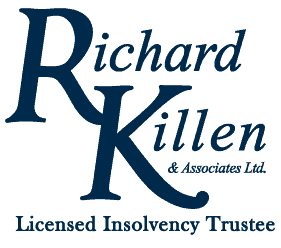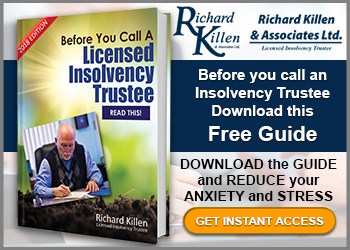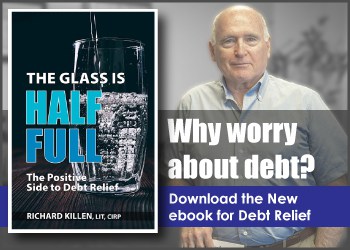What Are the Alternatives in Coping With a Debt Crisis?
Posted on: June 16, 2014Posted in Credit, Creditor Negotiation, Debt, Debt Counseling | Comments Off on What Are the Alternatives in Coping With a Debt Crisis?
 No one wants to go bankrupt. It is the last resort when faced with insurmountable financial problems. But even if your payments are in arrears and you are getting collection calls, there are other options besides a bankruptcy, which we at Richard Killen & Associates are glad to explain. These include:
No one wants to go bankrupt. It is the last resort when faced with insurmountable financial problems. But even if your payments are in arrears and you are getting collection calls, there are other options besides a bankruptcy, which we at Richard Killen & Associates are glad to explain. These include:
Getting a Consolidation Loan
If you can qualify for a consolidation loan, you can bundle all your debts into a single package and make a monthly payment that will probably be lower than what you are faced with right now with all the individual payments. You can usually reduce interest and stretch out your repayment period. The trick is qualifying for the loan if your credit rating has taken a beating because of your financial difficulties. To get approved, you may need collateral, or a co-signor or guarantor – not always easy to find.
Making an Informal Arrangement
You can, perhaps, negotiate with creditors to reduce monthly payments. Or you might be able to get them to accept less than the full amount owed, if you have a lump sum payment you can make. In either case, you should use the services of a licensed trustee, lawyer, accountant or reputable credit counselling agency to do this, and beware of the many unscrupulous sorts out there poised to take advantage of your situation. Other pitfalls of this method include: the high degree of difficulty in conducting negotiations; creditors who can still sue you; no protection from garnishees; it doesn’t stop interest accumulation; and it needs to be accepted by all creditors before it can be effective.
Offering a Consumer Proposal
A consumer proposal is a legally binding agreement between you and your unsecured creditors to settle all your unsecured debts. It is filed with the government and managed by a licensed trustee, such as Richard Killen & Associates, under the supervision of the court. You will probably wind up paying back only a portion of what you owe – for instance 10, 20, or 30 per cent – and so get the debt relief you need without going bankrupt.
How this differ from the two options above? The three main advantages are:
- You don’t have to negotiate with each creditor separately.
- You only need a simple majority of the debts to be in favour, not all of them, to get it accepted.
- The creditors have to listen to you. If they ignore your offer they will be stuck with it, so you will have their attention.
In other words, you will be negotiating a settlement of all you unsecured debts from a position of more-or-less equality with your creditors. We usually don’t think of ourselves as being in that position with the banks and credit card companies, do we?
A proposal also stops all interest charges, halts lawsuits and garnishees, and does not require direct individual negotiations (the trustee handles this for you).
Everyone’s situation is different. To decide what is the best method of dealing with your debt problems, you need expert advice. At Richard Killen & Associates we offer a free assessment consultation, so you will have a clear picture of what your options are.










